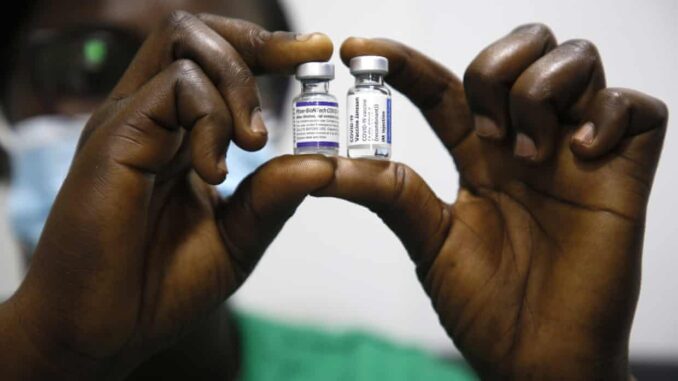
o one asked for generosity – only justice. Self-interest as well as decency should have encouraged fairer distribution of vaccines: no one is safe until everyone is safe. Yet two years into the pandemic, with 8,400 people dying each day, the prospect of anything approaching vaccine equity remains as remote as ever. More boosters have been delivered in the developed world than first and second doses in low-income countries – the places that can least afford other measures such as restrictions on movements. In high-income countries more than two in three people have received at least one dose, but in low-income countries only one in nine. As of November, only one in four African healthworkers was fully vaccinated.
“What we understood to be equitable treatment is not the way rich nations looked at it. [To them] it means: we get [them] first, and when we are done with saving our own people, we will then attend to you,” observed Strive Masiyiwa, African Union special envoy on Covid-19, and head of the African vaccine acquisition task team.
Covax, the vaccine-pooling scheme, hoped to deliver 2bn shots by the end of last year. It has only provided half that, and recently warned that it cannot accept more donations of doses, because it lacks the cash to buy syringes.
Wealthier nations should provide funding now. But a deeper rethink is needed. The Omicron wave has highlighted the risk posed to everyone by variants. New ones could prove more lethal. Poorer nations are also thinking about the next pandemic; Covid-19 has been a painful lesson. Richer nations have engaged in vaccine nationalism – hoarding doses (in some cases, later thrown away unused) so that the African Union was unable to buy anything with the $2bn it had in hand. They have taken up vaccine diplomacy: campaigners recently pointed out that Australia had distributed 18m doses to neighbouring countries, but committed not one to Covax. Put under pressure, they have pledged donations but delivered only small portions of them, and dumped nearly expired doses – so developing countries are unable to use them in time.
Covax alone cannot fix this. Médecins Sans Frontières recently warned that, for all its good intentions, the scheme has fundamental flaws, including a failure to involve governments and civil society from lower-income countries, and its commitment to a global health model that considers protecting the intellectual property of pharmaceutical firms to be essential. It also counted on Indian production for African needs. When the Delta variant hit India, and its government imposed an export ban, Africa was left without even the inadequate supply it had been promised.
The lesson, says Mr Masiyiwa, is that those with production assets are the ones who can vaccinate their people. National leaders will not prioritise another population over their own; realistic plans must treat vaccine nationalism as a given. There has been some progress: Pfizer’s partner, BioNTec, is building Covid vaccine manufacturing plants in Rwanda and Senegal. South Africa has made its own version of the Moderna vaccine. But this can be only a start. With discussions beginning on a global pandemic response accord, there is growing demand for a requirement for knowledge to be shared in future outbreaks. That will unquestionably face intense pushback from pharmaceutical businesses and their supporters. But patent waivers – backed by the US, but still opposed by the UK and EU – and technology transfer should begin now. Poorer countries can wait no longer.
END

Be the first to comment